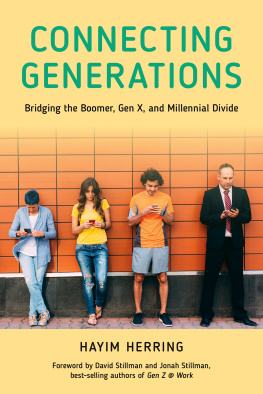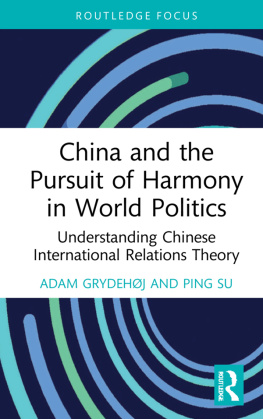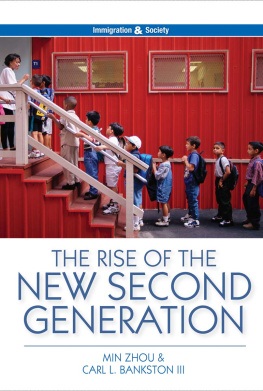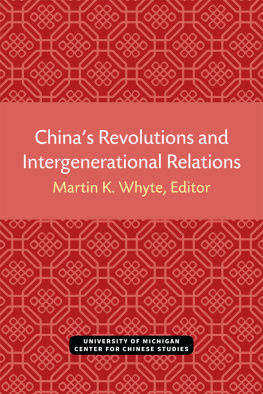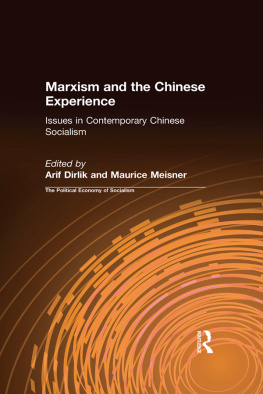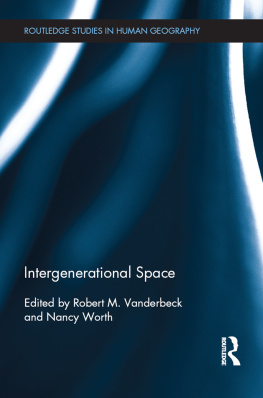
Cultural Reverse I
The phenomenon of Cultural Reverse () emerged in the 1980s after Chinas reform and opening up. In this era of rapid social change, the older generation started to learn from the younger generation across many fields, in a way that is markedly similar to the biological phenomenon of The old crow that keeps barking, fed by their children from ancient Chinese poetry. In this book, the author discusses this new academic concept and other aspects of Chinese intergenerational relations.
In the first volume, the author explains some popular social science theories about generations, traces the history of Chinese intergenerational relationships, and, through focus-group interviews with 77 families in mainland China, comprehensively discusses the younger generations values, attitudes, behavior patterns, and the ways in which they differ from their ancestors.
The book will be a valuable resource for scholars of Chinese sociology and also general readers interested in contemporary Chinese society.
Zhou Xiaohong served as dean of the School of Social and Behavioral Sciences at Nanjing University for 16 years; now he is a senior professor of Humanities and Social Sciences at Nanjing University. His main research fields are sociological theory, social psychology, and contemporary China studies.
China Perspectives
The China Perspectives series focuses on translating and publishing works by leading Chinese scholars, writing about both global topics and China-related themes. It covers Humanities & Social Sciences, Education, Media and Psychology, as well as many interdisciplinary themes.
This is the first time any of these books have been published in English for international readers. The series aims to put forward a Chinese perspective, give insights into cutting-edge academic thinking in China, and inspire researchers globally.
Titles in sociology currently include:
The Way to a Great Country
A Macroscopic View on Chinese Population in the 21st Century
Tian Xueyuan
Social Structure and Social Stratification in Contemporary China
Lu Xueyi
Social Construction and Social Development in Contemporary China
Lu Xueyi
Economic Transition and Peoples Livelihood: China Income Distribution Research
Zhao Renwei
Economic Transition and Peoples Livelihood: China Economic Transition Research
Zhao Renwei
Academic Experiences of International Students in Chinese Higher Education
Mei Tian, Fred Dervin and Genshu Lu
For more information, please www.routledge.com/series/CPH
This book is published with financial support from the Chinese Fund for the Humanities and Social Sciences
First published in English 2021
by Routledge
2 Park Square, Milton Park, Abingdon, Oxon OX14 4RN
and by Routledge
52 Vanderbilt Avenue, New York, NY 10017
Routledge is an imprint of the Taylor & Francis Group, an informa business
2021 Zhou Xiaohong
Translated by Tong Yali
The right of Zhou Xiaohong to be identified as author of this work has been asserted by him in accordance with sections 77 and 78 of the Copyright, Designs and Patents Act 1988.
All rights reserved. No part of this book may be reprinted or reproduced or utilised in any form or by any electronic, mechanical, or other means, now known or hereafter invented, including photocopying and recording, or in any information storage or retrieval system, without permission in writing from the publishers.
Trademark notice: Product or corporate names may be trademarks or registered trademarks, and are used only for identification and explanation without intent to infringe.
English Version by permission of The Commercial Press.
British Library Cataloguing-in-Publication Data
A catalogue record for this book is available from the British Library
Library of Congress Cataloging-in-Publication Data
A catalog record has been requested for this book
ISBN: 978-1-138-33074-0 (hbk)
ISBN: 978-0-429-44767-9 (ebk)
The process whereby the younger generation passes knowledge and culture to their living predecessors is what sociologists call reversed socialization. This involves a cultural flow analogous to the biological process of crows returning nurturing to their parents, which I define hereinitially yet accuratelyas cultural reverse or cultural feedback. This term, in its common sense, refers to the cultural transmission process from the younger generation to the older generation which prevails especially in a dramatically transitional society such as contemporary China.
Zhou Xiaohong
Cultural reverse or a reversed cultural pattern?
In 1988, ten years after China initiated its extensive reform and opening-up, I wrote down the above statement to address a social phenomenon emerging in China. Now, 42 years of reform and opening-up has transformed China from an age-old traditional society to a fairly modern one characterized by vigorous globalization and the socialist market economic system. The country has accomplished a succession of significant schemes proposed by Deng Xiaoping, the giant of the 20th century, with the gross domestic product (GDP) maintaining an average growth rate of around 10% over most of the past four decades, increasing from 364.5 billion CNY in 1978 to 99.1 trillion CNY in 2019. More importantly, the nation has undergone so extensive and profound a social reform that its political system, social structure, daily life, and zeitgeisteven peoples values and social behaviorshave all transformed accordingly, which is unprecedented in Chinese history; in fact, Chinas transition during the past 42 years has surpassed in significance that of the preceding three centuries in total, both in terms of breadth and depth.
Among the many changes now taking place in China is one that is evolving inconspicuously but gradually gathering momentum, that is, the shifting status of educator and educatee. While this was firmly settled in traditional China, it has now for the first time become blurred, or even reversed, with the younger generation becoming the indisputable vanguard of political, economic, and cultural reforms. In the face of the younger generations new values, different behavior patterns, and somewhat nonconformist lifestyles, the older generation is perplexed and frowns, while at the same time more or less influenced and remolded by them. Some older people even go as far as involuntarily succumbing to their younger descendants. This kind of cultural reverse is an inevitable outcome of Chinas involvement in the world integration through ten years of reform and opening-up preceded by ten years of seclusion. It is also a precursor of old Chinas rejuvenation (Zhou, 1988).
When I wrote down these words about 30 years ago, I was a recent graduate of sociology. It was also the time when our fathers, who seized political power under the leadership of the Chinese Communist Party, had reached their declining years and the reform and subsequent societal changes brought new ideas and opportunities for the young to influence them. Today, the even younger post-Cultural Revolution generation has grown up, and, due to globalization and Chinas great progress over the past 42 years, they are able to influence both their parents and grandparents. As the two American sociologists, Berger and Luckmann, wrote in their later influential book


